How an Ohio group is bringing God back to public school
WHITEHALL, Ohio — After a morning lesson on multiplying fractions, about half of the students in a fifth-grade class at Etna Road Elementary School packed up their work and headed to the campus library.
The other half, all wearing matching red T-shirts, put on their coats, lined up single-file and boarded a red bus with the words “LifeWise Academy” painted on the side.
While their classmates back at school browsed shelves of books, the children on the bus sang praise to Jesus.
“For there is no other name ... by which we must be saved.”
The students soon arrived at a church a half-mile away where, for the next 30 minutes, they would pray, read the Bible and sing worship songs — activities that have become a routine part of their week thanks to an Ohio-based nonprofit on a mission to put God back in the public school day.
LifeWise Academy is permitted under a pair of little-known, decades-old U.S. Supreme Court rulings that allow for off-campus religious instruction during school hours.
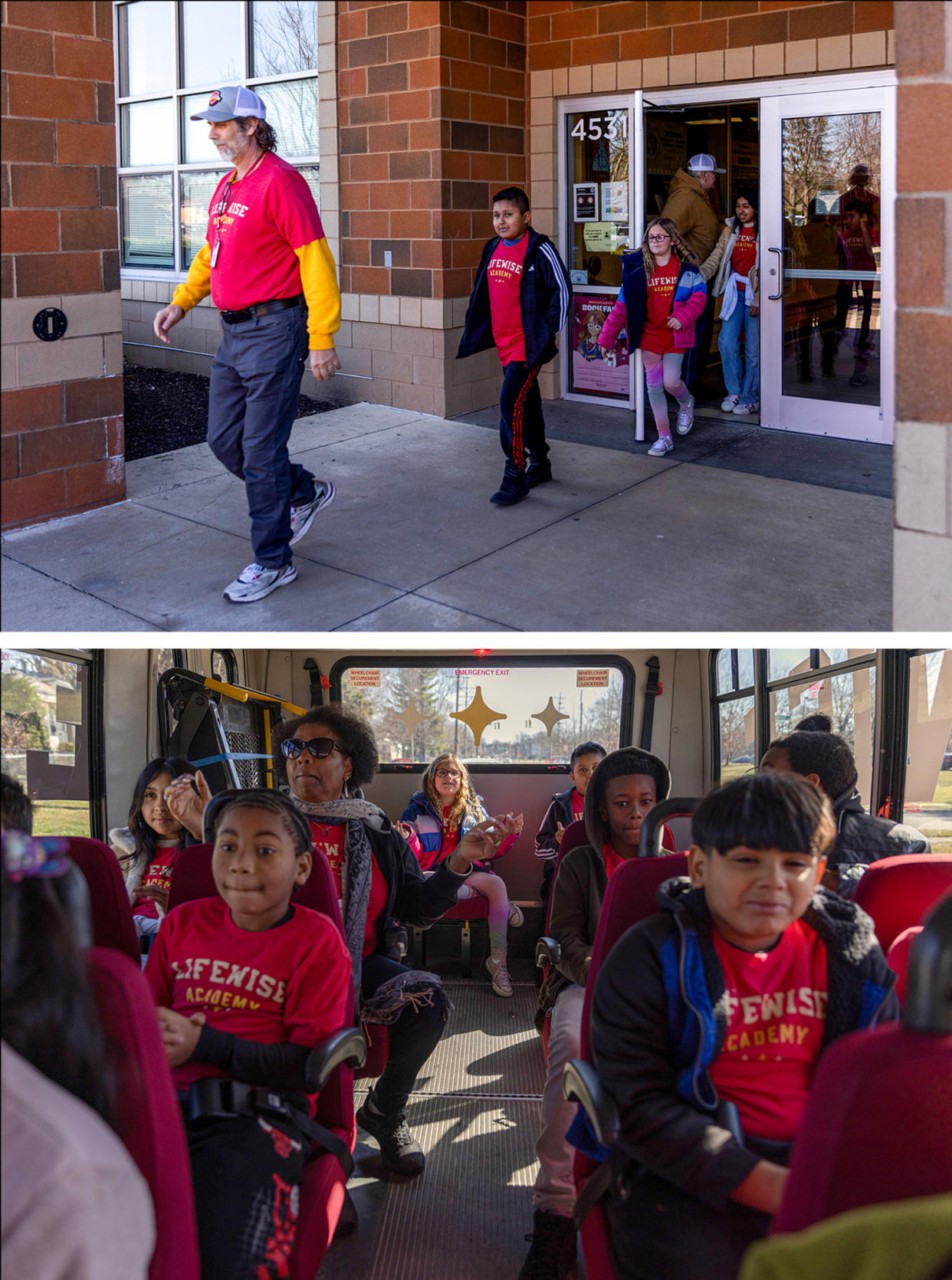
When LifeWise launched in 2018, the initial goal was to serve 25 schools by 2025, but it surpassed that long ago. By the start of this year, LifeWise had set up chapters in more than 300 schools in a dozen states, teaching 35,000 public school students weekly Bible lessons that are usually scheduled to coincide with lunch or noncore courses such as library, art or gym class.
LifeWise has won support from conservatives on the front lines of the new culture wars over LGBTQ inclusion, sexually explicit library books and the role of racism in American history. But it also has a growing foothold in some progressive suburbs and cities, including deep-blue Columbus, Ohio.
Its explosive growth has been celebrated by Christian groups and parents who’ve long decried the removal of religion from America’s classrooms — and denounced by those who believe there should be a hard line between religion and public education.
Supporters say LifeWise, which teaches children character development through Bible lessons, complies with the separation of church and state. Public schools are not allowed to directly promote or fund the program, which is offered free to students whose parents sign permission slips.
“A lot of parents want to be able to say to their child, ‘Yeah, you’re going to get science class, you’re going to get math class, you’re going to get English class — and you’re going to have Bible class, too, because this is important to us as a family,’” said LifeWise founder and former Ohio State Buckeyes defensive lineman Joel Penton.
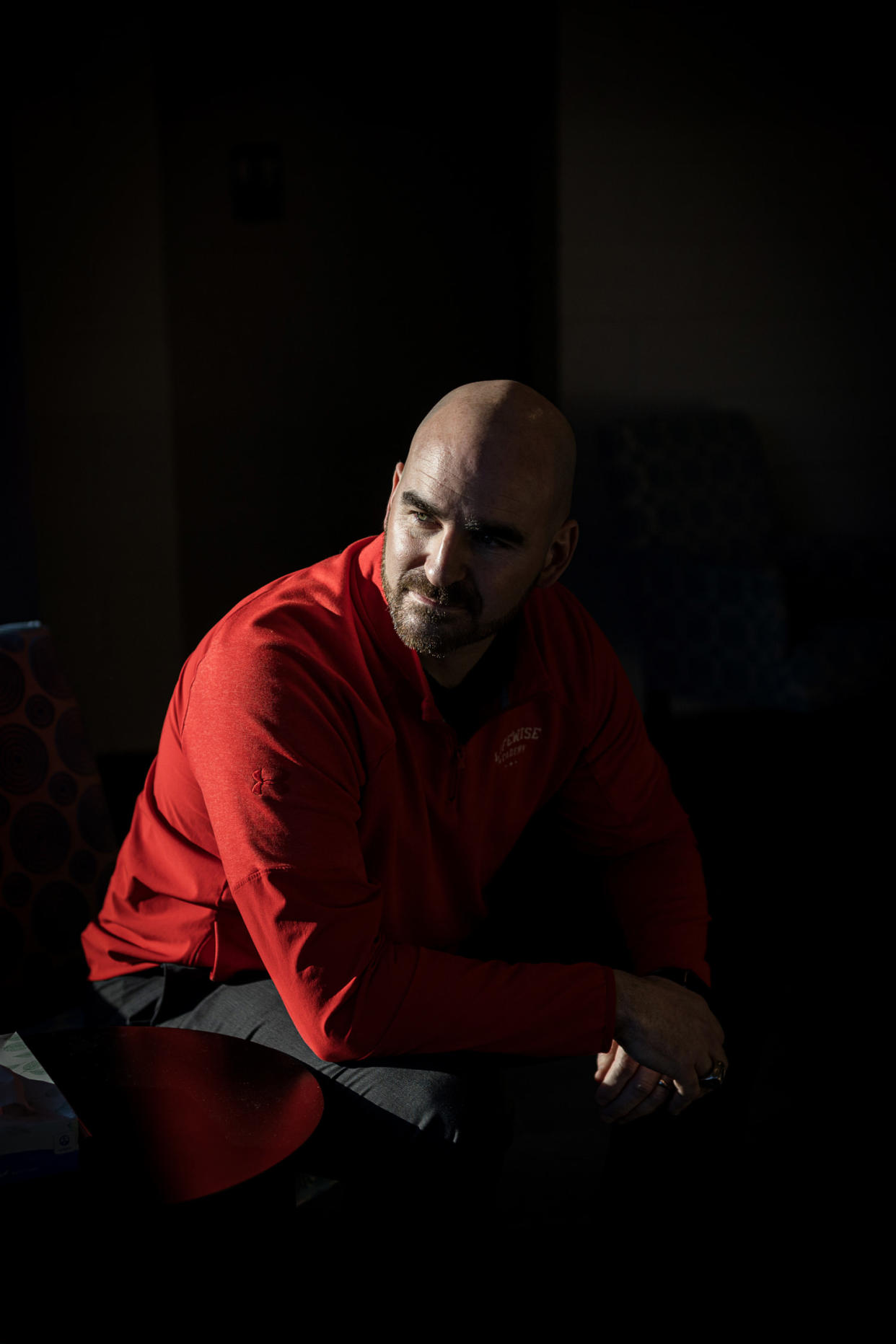
But parents and activists who’ve mobilized against LifeWise say that busing students to nearby churches, where they sometimes collect prizes and eat candy, has made some non-Christian children feel left out or pressured to attend.
“Whether it’s happening on campus or not, this program is bringing religion into the school,” said Demrie Alonzo, an English tutor who works at several schools with LifeWise programs in central Ohio. “It’s not fair to the kids of different religions.”
At a time when conservatives nationally are fighting what they portray as liberal indoctrination in schools, some parents and critics see the opposite playing out, accusing LifeWise of using schools to draw children into an evangelical faith tradition whose members overwhelmingly vote Republican.
Opponents have also documented several instances of teachers and administrators promoting LifeWise to students, either by allowing LifeWise volunteers to visit classrooms, hosting schoolwide assemblies or advertising the program in paperwork sent home to parents — actions that, according to some legal experts, could violate the First Amendment.
Penton said LifeWise follows all laws and local policies and avoids hot-button partisan topics in its curriculum, which is designed to guide students through the entire Bible in five years. He said LifeWise receives “very broad support” from groups with a range of political views.
Last summer, LifeWise’s national teacher summit was sponsored by Patriot Mobile, a far-right Christian cellphone company that has spent hundreds of thousands of dollars supporting school board candidates promising to fight LGBTQ acceptance in schools.
And in December, Penton appeared on the Truth and Liberty Live Call-in Show hosted by a group whose mission is to reshape American society by advancing conservative Christian values in seven key “mountains” of public life — including media, government and education.
On the show, Penton lamented the referendum last year enshrining abortion rights in Ohio’s constitution, saying it made him “incredibly sad.” It also made him realize, he said, that LifeWise’s mission “is all the more important.”
“What other hope do we have,” Penton said, “but to inject the word of God into the hearts of the next generation?”
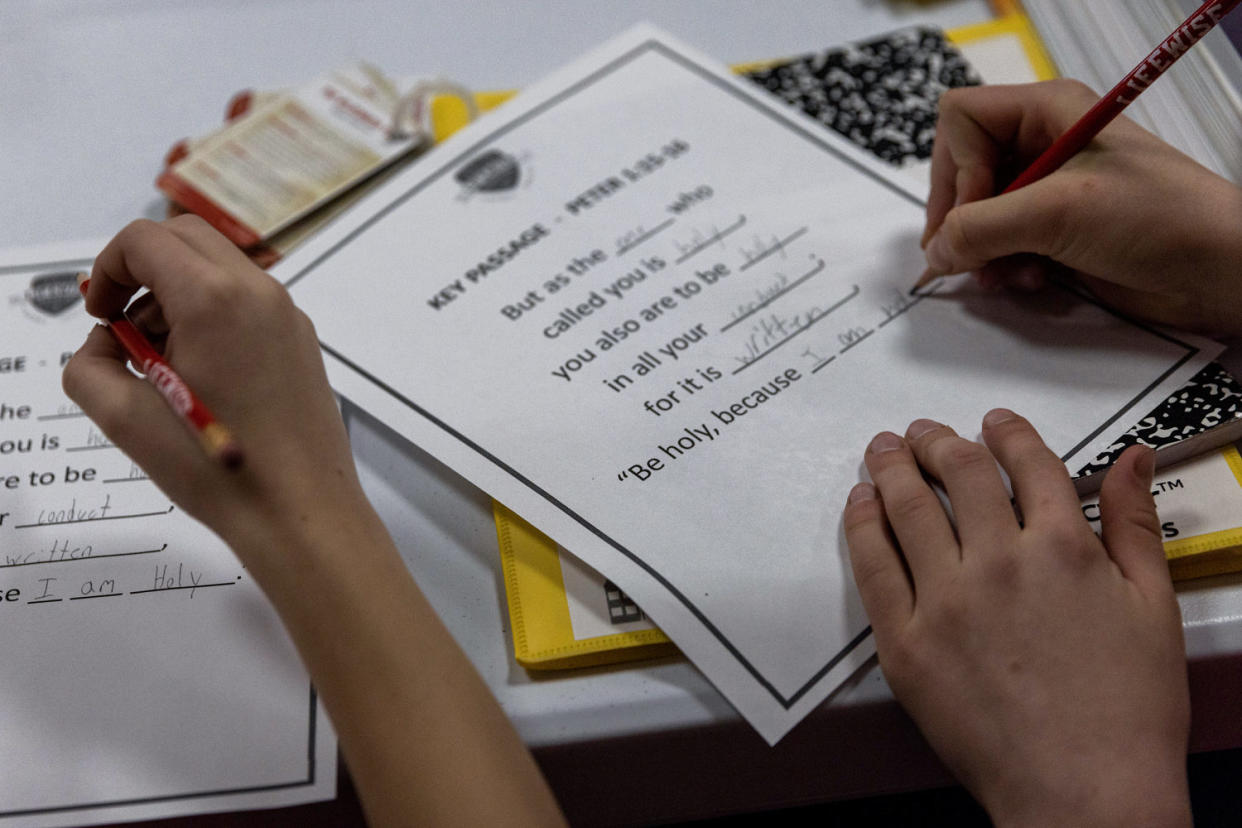
During school hours
Penton said most people are surprised when they learn that this type of program — known as release time religious education — is legal.
Supreme Court rulings in 1948 and 1952 established that public school students could receive religious instruction during the school day, so long as the classes took place off school property and the government did not promote or pay for it.
Release time programs cropped up across the country in the decades since — including in Utah and New York City — with Mormon and Jewish groups among the biggest users, said Steven K. Green, a professor of law and religious history at Willamette University.
“For the most part, these were mom-and-pop type operations,” Green said. “Locally oriented, locally run.”
LifeWise has super-charged the concept, he said, by using a franchise-style, “plug-and-play” model that allows local groups to easily start new chapters. Community volunteers raise money and find a church to host the classes; LifeWise provides everything else, from curriculum to paid teaching staff to background checks.

“It’s just a matter of people becoming aware that this is really possible and then giving them the tools,” Penton said. “I think parents by and large have always wanted this as part of their kids’ education.”
LifeWise has had to seek school board approval in states and districts that did not already have release time policies on the books. Most of the time, school boards have voted to allow the program, Penton said. In districts that have refused, board members and administrators primarily cited concerns about disruptions to the school day.
Some GOP-controlled state legislatures recently have sought to expand access to off-campus religious instruction. Indiana Gov. Eric Holcomb, a Republican, signed a law this month requiring all public schools to accommodate programs like LifeWise. Ohio and Oklahoma lawmakers are considering similar measures.
Doug Shoemaker, director of partnerships and legal services at Whitehall City Schools, which includes Etna Road Elementary, said the district has a decades-old policy allowing for release time programs. LifeWise was the first religious group in recent memory to capitalize on it, he said.
“We don’t sell it or advocate for the program, but we also don’t disrupt or block the program,” Shoemaker said. “It’s a choice that parents have.”
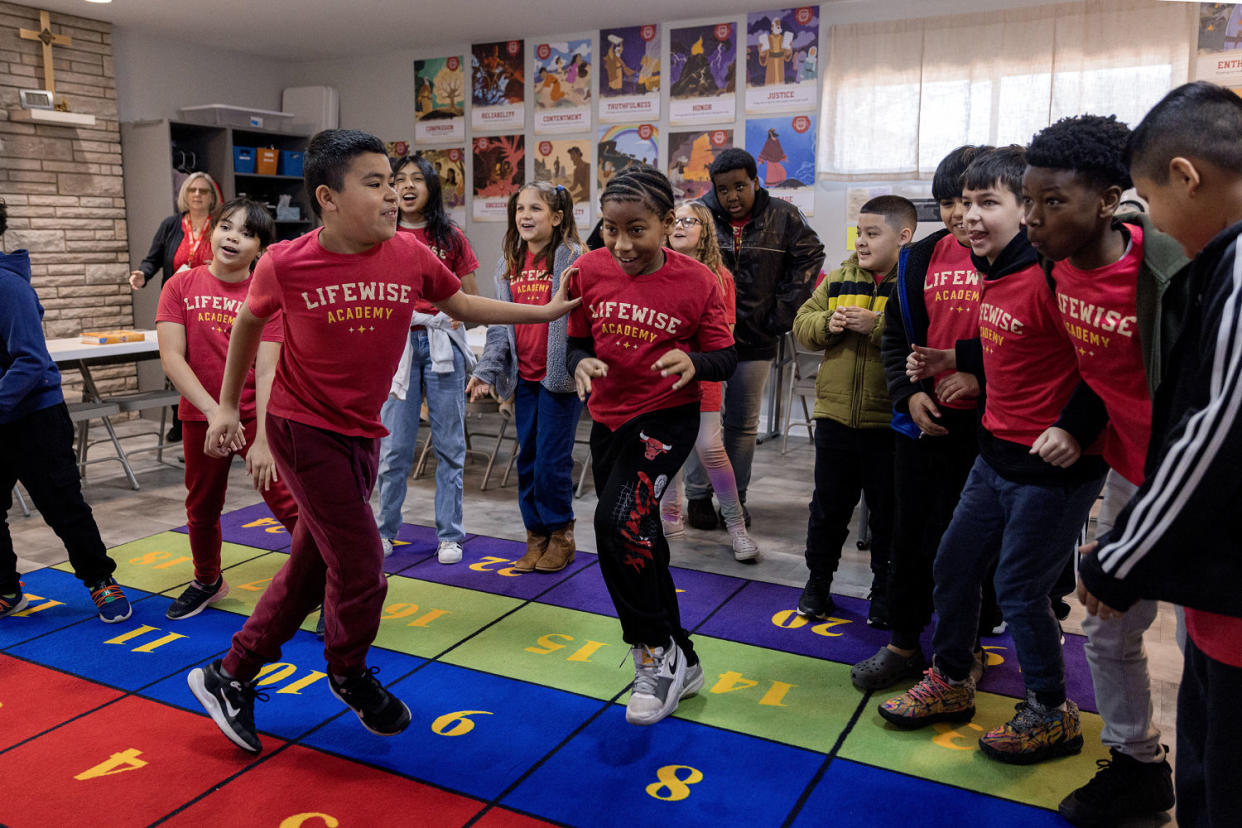
The feature that most inspires opposition to LifeWise — the fact that it takes place during school hours — is also what Penton believes makes it special.
LifeWise has rejected requests by some school districts to schedule the program before or after school, the approach favored by most other religious clubs, because Penton said that would make it less accessible.
LifeWise put NBC News in touch with seven parents whose children participate. Several said they wanted their children to learn the Bible but wouldn’t have enrolled them in an after-school club. Some said they’ve noticed improvements in their children’s behavior since joining and learning about character traits such as gratitude, obedience and respect.
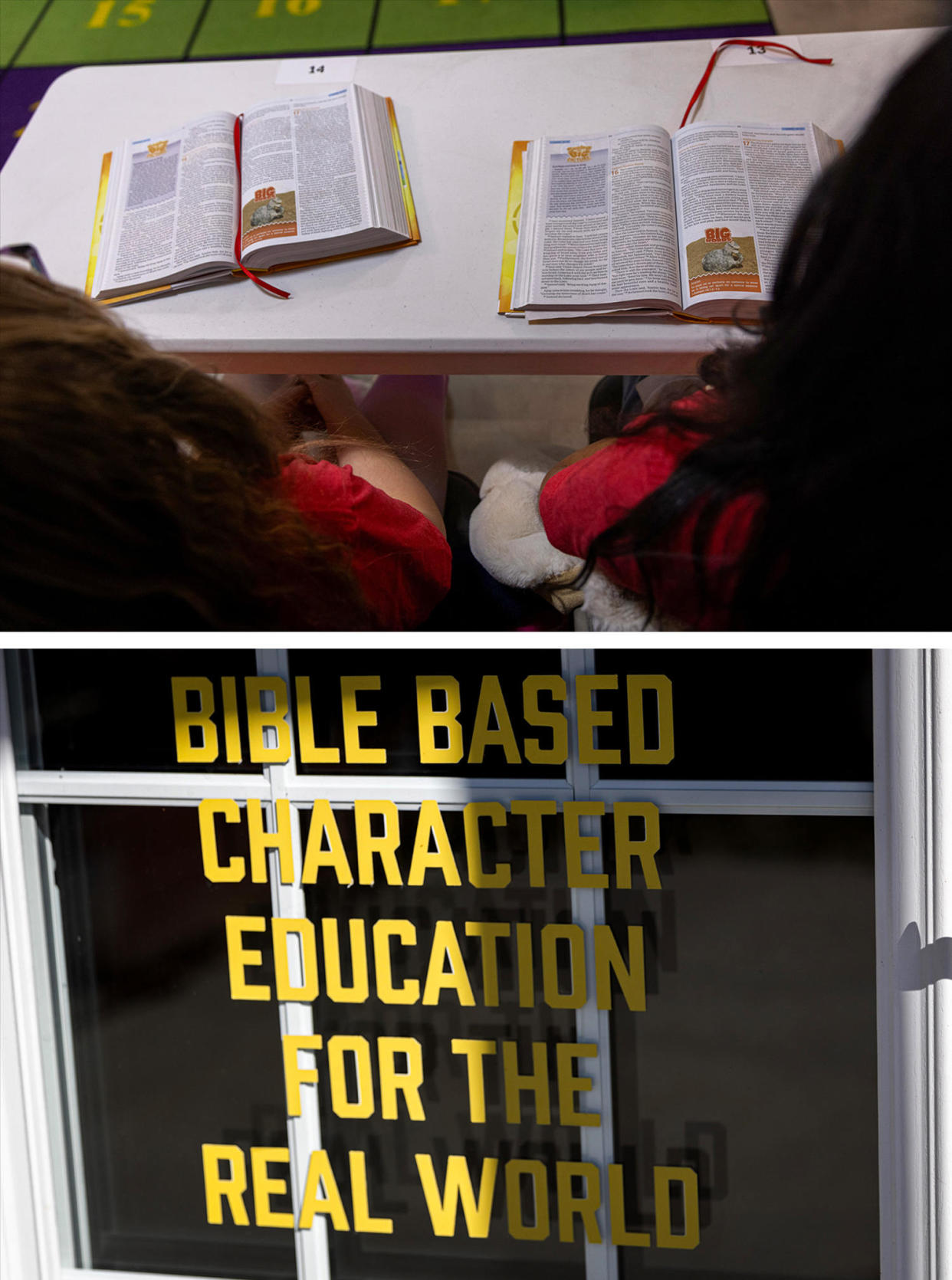
“I have firsthand seen differences in my boys that I kind of never thought possible,” said Jessica Cappuzzello, who has two children who attend LifeWise in the New Albany-Plain Local School District outside Columbus.
The interest in LifeWise Academy has coincided with a surge in donations, according to the most recent publicly available tax filings. LifeWise Inc., the nonprofit that operates the program, brought in $6.5 million in the fiscal year ending in June 2023 — six times more than when it started in 2018.
Vincent Coleman, a former middle school principal, runs LifeWise’s programs in Columbus City Schools, where a majority of the nearly 500 students who participate are Black or Latino and come from disadvantaged homes. Coleman said LifeWise volunteers have helped children facing food insecurity, homelessness and mental health struggles.
Coleman said he was frustrated at times during his two decades as an administrator because he wasn’t permitted to openly share his faith when counseling children.
LifeWise, he said, fills that gap.
“You can communicate to a kid that ‘Hey, your life matters. God loves you,’” Coleman said. “That’s a component that our kids need to hear.”
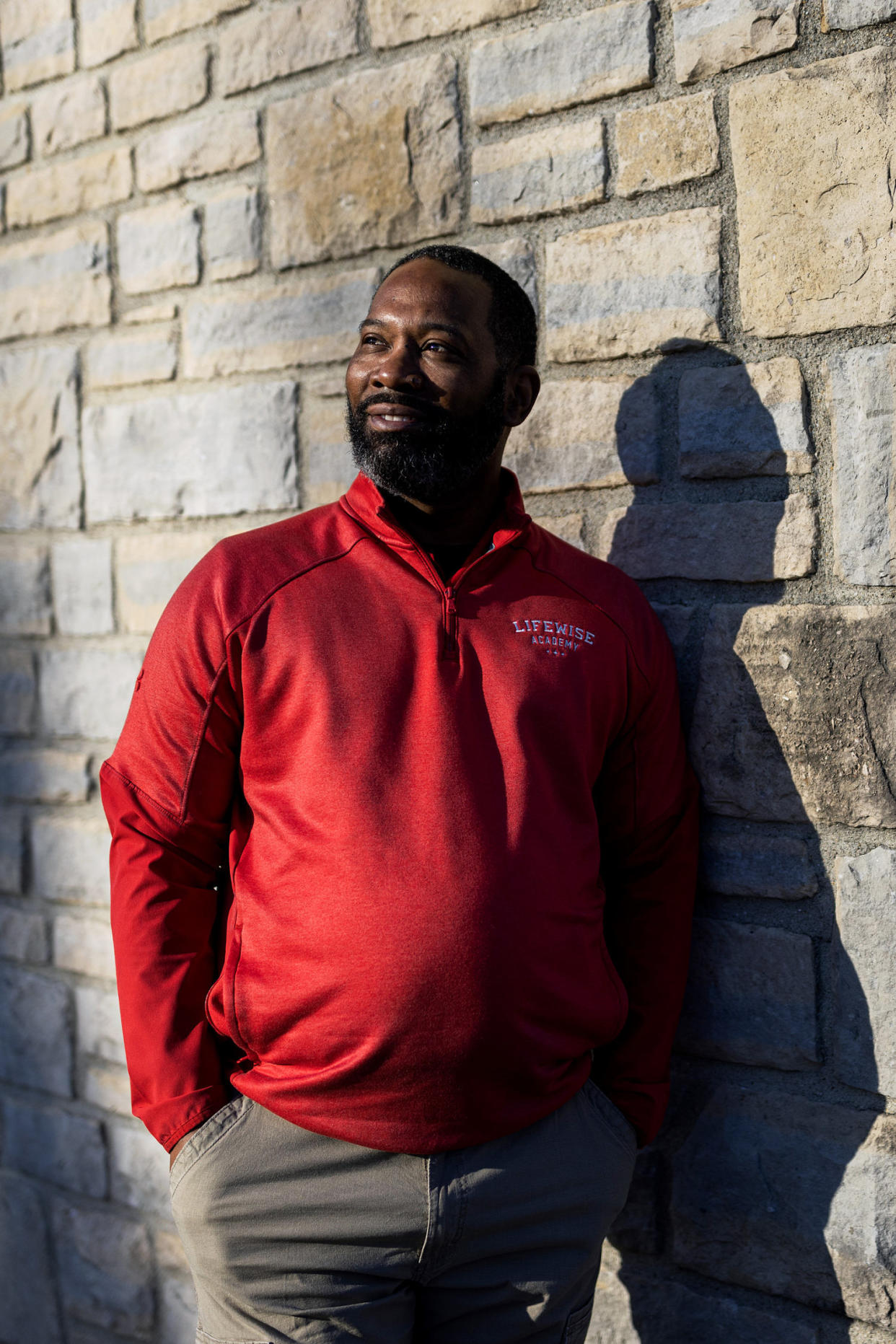
‘Using the children’
Sarah Myers, the mother of a third grader, was upset when she learned in 2022 that LifeWise was starting a program in Hilliard, Ohio, an affluent suburb north of Columbus that’s also the location of the nonprofit’s national headquarters.
“I consider myself a very strong woman of faith, and I teach that to my child,” Myers said. “I just don’t think this is the way to do it.”
Although her child doesn’t attend LifeWise, she said the program still affects her. Myers said having all the LifeWise kids wear matching red shirts creates “an in-group and an out-group.”
LifeWise chapters, she noted, sometimes send children back to school with invitations to share with friends. Some have promised students ice cream or popcorn parties if they convinced a certain number of classmates to sign up — recruiting tactics that Penton said are used by other student clubs.
“They’re using the children to proselytize,” Myers said. “I just think that’s so wrong.”
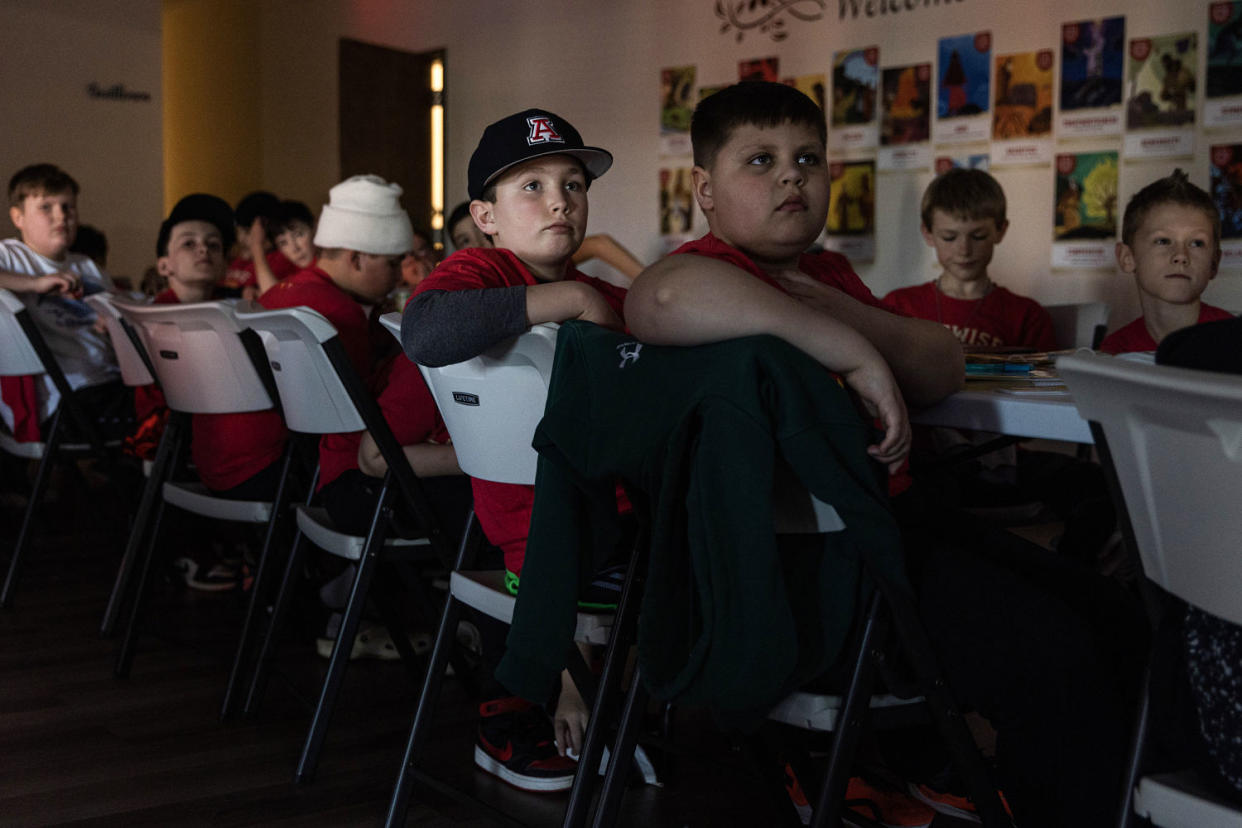
Sammi Lawrence, a legal fellow at the Freedom From Religion Foundation, said her organization, which advocates for the separation of church and state nationally, has received seven reports that she describes as school officials inappropriately promoting or accommodating LifeWise.
In some cases, Lawrence said, teachers and administrators “really go further than the law allows in terms of promoting LifeWise and trying to convince kids to go.”
LifeWise officials said they defer to local policies in deciding how to advertise. In some districts, schools have allowed LifeWise to send permission slips home in student backpacks, Penton said. In others, LifeWise has had to mail information packets to families.
Alonzo, the tutor who works at several central Ohio schools, said she witnessed an elementary principal in the Fredericktown Local School District guide LifeWise volunteers from classroom to classroom at the start of the school year. In one of the classes, Alonzo said she saw a volunteer share a permission slip with a Hindu student.
“I told the woman, ‘This student believes in a different God; this isn’t for her,’” Alonzo said. “And the woman said, ‘Yeah, but I was just telling her about Jesus.’ And I said, ‘No, no, no. This is not appropriate.’”
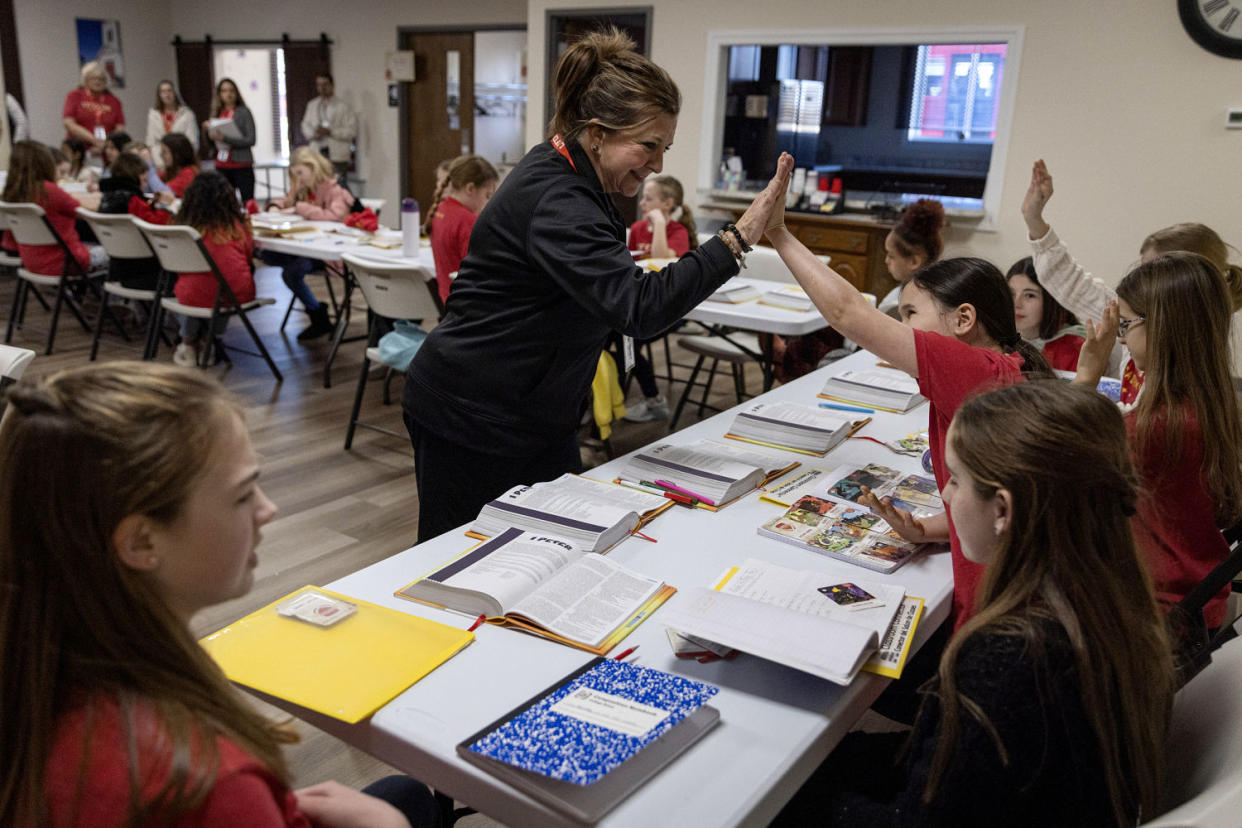
Gary Chapman, Fredericktown’s superintendent, said the district investigated the incident after learning about it in October from the Freedom From Religion Foundation. Afterward, Chapman said, the district reminded administrators that they must “refrain from actions that could be viewed as promoting or discouraging participation in any religious release time program.” The district also told local LifeWise officials that it prohibits outside groups from soliciting student participation during school hours, Chapman said.
Penton said most of the complaints he’s heard from groups like the Freedom From Religion Foundation are rooted in misunderstandings about what’s legal and how the program works.
He denied relying on peer pressure to recruit students and scoffed at the idea that LifeWise might lead to bullying or teasing in schools. “These kids are going to our class to specifically learn things like respect and kindness and love and forgiveness,” Penton said.
He acknowledged that the program aims to reach non-Christian students with lessons tailored for “unchurched” children.
To illustrate their success on that front during recent interviews with conservative outlets, Penton has told the story of a Muslim child who wished so badly to attend LifeWise with his friends that the student faked his parent’s signature on a permission slip. (Penton said the school spotted the forgery and told the student to ask his parents, who later agreed to send him.)
“We’re praying with students,” Penton said, “but oftentimes we’re teaching students how to pray.”
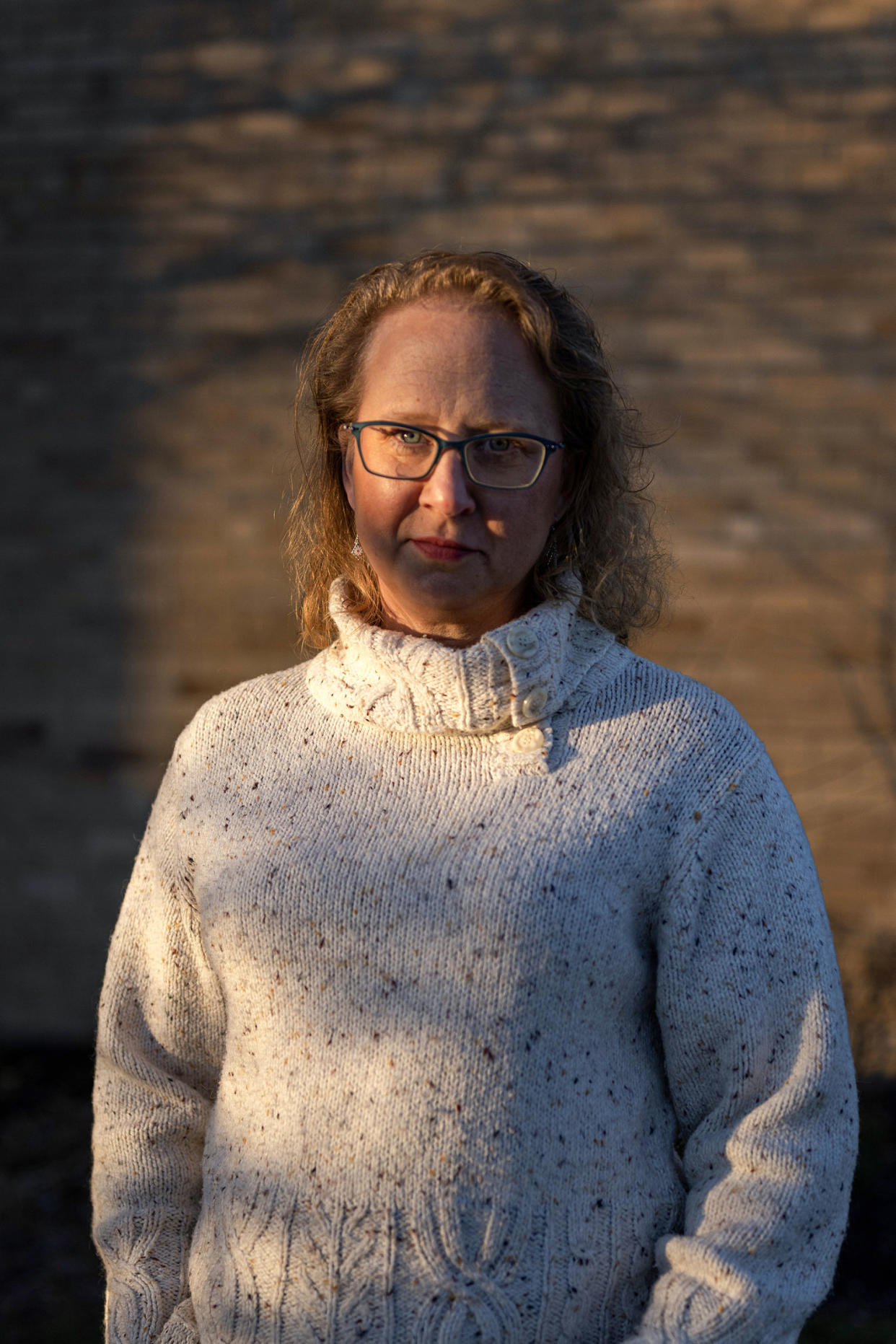
Reaching the entire nation
After stepping off the red bus, the fifth graders from Etna Road Elementary entered a brightly decorated Sunday school classroom at New Life Church.
The children, who attend school in a diverse, middle-class suburb east of Columbus, broke into small groups and took turns sharing prayer requests. One child asked an adult to pray for a sick family member. Another wanted God to bless him with McDonald’s for lunch.
“Dear Jesus,” one of the LifeWise volunteers prayed aloud, “thank you for loving us.”
Then the children found their seats and opened their Bibles to the book of 1 Samuel. This week’s lesson: David vs. Goliath.
After the reading, a LifeWise teacher led the children to a 9-foot-9-inch poster of Goliath. “That’s how tall he really was,” one of the volunteers said.
One by one, the children took turns slinging jumbo marshmallows at the poster, aiming to strike the giant in his forehead just as David did in the Bible passage.
The story of David’s triumph — and his faith that he would prevail — was meant to illustrate the week’s character trait: discernment, the ability to recognize what is true, despite appearances.
Penton stood to the side, observing. Six years after launching LifeWise Academy, hoping then to share Jesus with public school children in at least a handful of Ohio school districts, Penton has discerned that God is now calling him and his team to a far bigger goal.
There are 13,000 public schools in America educating about 50 million students, Penton noted.
“It may sound a little wild,” he said, “but we would like to make Bible education available to all of them.”

After the last student took her shot at Goliath, it was time for the children to get back on the bus and rejoin their classmates for lunch.
The volunteers at New Life Church quickly cleaned up the marshmallows and tidied up the Sunday school classroom.
Another group of public school students would soon be on their way.
